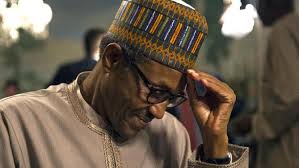P
ProfRem
Guest
Failure of President Muhammadu Buhari led federal government to meet revenue targets for the first and second quarters, persistent oil production shut-in from militancy and foreign exchange supply challenges have renewed concerns on the feasibility of the 2016 budget.
The problems have also cast a shadow over the newly inaugurated flexible rate policy.
An expert who confided in The Guardian said it is going to be tough for the country implementing its fiscal plan without a corresponding revenue and unresponsive foreign exchange environment.

The recent figures from the National Bureau of Statistics, NBS, Nigeria's annual inflation rose to 16.5 percent in June from 15.6 percent in May.
Food inflation also rose to 15.3 percent from 14.9 percent over the same period, the NBS said.
Nigeria's revenue generation has been seriously impacted by the recent crisis in the Niger Delta region. The country's currency is depreciating against the dollar and implementation of the year's budget is slow.
The Naira received its worst bashing last week at both the parallel and official markets, thus signalling more pains for Nigerians. At the Nigerian parallel market, the naira fell to its lowest level since the start of the new foreign exchange regime, trading at N363 to US$1 and N485 to one British pound.
The naira, which began trading at around N283 to the dollar at the interbank market on Thursday, depreciated to 284/$1 to become the third worst performing currency in the world for 2016. The Euro traded above N390 in Lagos and under N380 in the nation’s capital, Abuja.
Since 2016, the naira has lost 29.61 percent of its value on the official market, following the decision of the Central Bank of Nigeria (CBN) to allow for a floating foreign exchange regime.
Central Bank of Nigeria (CBN) had last month unfurled what it termed flexible foreign exchange rate policy to save the naira while at the same time assuaging foreign investors who were complaining that the naira was overvalued.
The policy, according to the apex bank, would usher in a period of hope that may stabilise the naira and smoothen out the spot forex demand with new forex forwards and future products.
The problems have also cast a shadow over the newly inaugurated flexible rate policy.
An expert who confided in The Guardian said it is going to be tough for the country implementing its fiscal plan without a corresponding revenue and unresponsive foreign exchange environment.

The recent figures from the National Bureau of Statistics, NBS, Nigeria's annual inflation rose to 16.5 percent in June from 15.6 percent in May.
Food inflation also rose to 15.3 percent from 14.9 percent over the same period, the NBS said.
Nigeria's revenue generation has been seriously impacted by the recent crisis in the Niger Delta region. The country's currency is depreciating against the dollar and implementation of the year's budget is slow.
The Naira received its worst bashing last week at both the parallel and official markets, thus signalling more pains for Nigerians. At the Nigerian parallel market, the naira fell to its lowest level since the start of the new foreign exchange regime, trading at N363 to US$1 and N485 to one British pound.
The naira, which began trading at around N283 to the dollar at the interbank market on Thursday, depreciated to 284/$1 to become the third worst performing currency in the world for 2016. The Euro traded above N390 in Lagos and under N380 in the nation’s capital, Abuja.
Since 2016, the naira has lost 29.61 percent of its value on the official market, following the decision of the Central Bank of Nigeria (CBN) to allow for a floating foreign exchange regime.
Central Bank of Nigeria (CBN) had last month unfurled what it termed flexible foreign exchange rate policy to save the naira while at the same time assuaging foreign investors who were complaining that the naira was overvalued.
The policy, according to the apex bank, would usher in a period of hope that may stabilise the naira and smoothen out the spot forex demand with new forex forwards and future products.

